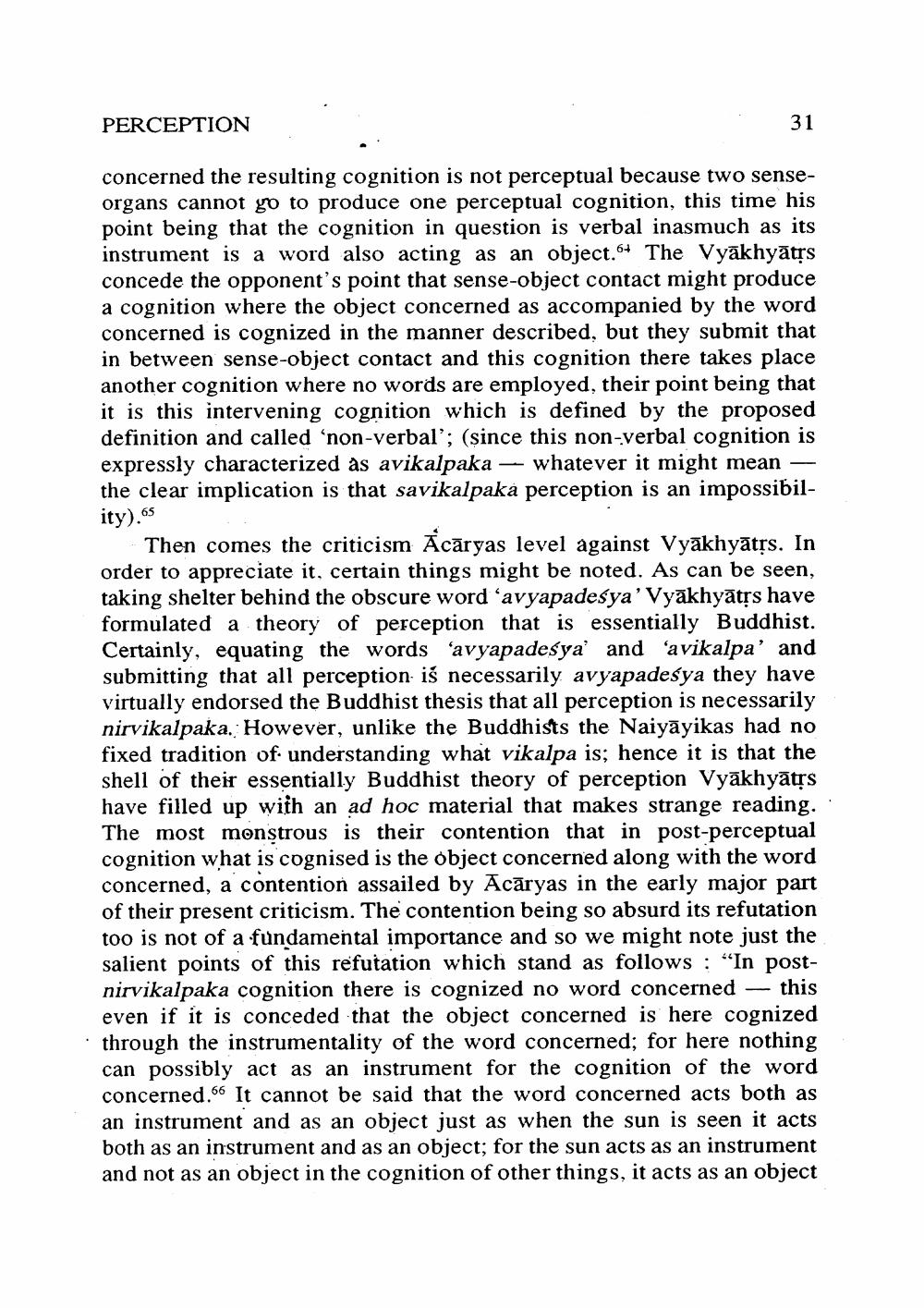________________
PERCEPTION
31
concerned the resulting cognition is not perceptual because two senseorgans cannot go to produce one perceptual cognition, this time his point being that the cognition in question is verbal inasmuch as its instrument is a word also acting as an object.6+ The Vyākhyātrs concede the opponent's point that sense-object contact might produce a cognition where the object concerned as accompanied by the word concerned is cognized in the manner described, but they submit that in between sense-object contact and this cognition there takes place another cognition where no words are employed, their point being that it is this intervening cognition which is defined by the proposed definition and called “non-verbal'; (since this non-verbal cognition is expressly characterized as avikalpaka — whatever it might mean — the clear implication is that savikalpaka perception is an impossibility).65
Then comes the criticism Acāryas level against Vyākhyātrs. In order to appreciate it, certain things might be noted. As can be seen, taking shelter behind the obscure word 'avyapadesya' Vyākhyātrs have formulated a theory of perception that is essentially Buddhist. Certainly, equating the words 'avyapadesya' and 'avikalpa' and submitting that all perception is necessarily avyapadesya they have virtually endorsed the Buddhist thesis that all perception is necessarily nirvikalpaka. However, unlike the Buddhists the Naiyāyikas had no fixed tradition of understanding what vikalpa is; hence it is that the shell of their essentially Buddhist theory of perception Vyākhyātrs have filled up with an ad hoc material that makes strange reading. The most monstrous is their contention that in post-perceptual cognition what is cognised is the object concerned along with the word concerned, a contention assailed by Acāryas in the early major part of their present criticism. The contention being so absurd its refutation too is not of a fundamental importance and so we might note just the salient points of this refutation which stand as follows : "In postnirvikalpaka cognition there is cognized no word concerned - this even if it is conceded that the object concerned is here cognized through the instrumentality of the word concerned; for here nothing can possibly act as an instrument for the cognition of the word concerned. It cannot be said that the word concerned acts both as an instrument and as an object just as when the sun is seen it acts both as an instrument and as an object; for the sun acts as an instrument and not as an object in the cognition of other things, it acts as an object




